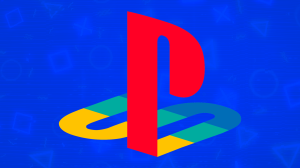Various organizations in the video game industry have released a joint statement regarding the World Health Organization’s decision to officially recognize “Gaming Disorder” in its International Classification of Diseases. Representatives from groups like the Entertainment Software Association and others that span regions and countries from New Zealand to South Korea to the United States called on the WHO to reconsider its decision. The statement from these organizations said there was not enough “robust evidence” at this time to warrant Gaming Disorder being included among the other recognized diseases
Videos by ComicBook.com
Released on the ESA’s site, the press release goes into detail about the representatives’ take on the WHO’s decision. The WHO made the call over the weekend to include Gaming Disorder among other addictive behaviors like gambling and said one could be classified with the disorder if gaming impacts their life to the point that their day-to-day control is impaired. Global video game industry associations disagree with this decision, according to the press release.
“The global video game industry—including representatives from across Europe, the United States, Canada, Australia, New Zealand, South Korea, South Africa, and Brazil—today called on World Health Organization (WHO) Member States to re-examine at an early date its decision to include ‘Gaming Disorder’ in the 11th edition of the International Classification of Diseases (ICD-11),” the joint statement said.
Elaborating on the call for reconsideration, the statement gave the WHO credit for the role it fills and the decisions it has made in the past. Gaming Disorder, however, is something that the groups say does not deserve the classification with a lack of evidence cited.
“The WHO is an esteemed organization and its guidance needs to be based on regular, inclusive, and transparent reviews backed by independent experts,” the statement continued. “‘Gaming disorder’ is not based on sufficiently robust evidence to justify its inclusion in one of the WHO’s most important norm-setting tools.”
The statement also spoke about the protections which have been put in place when it comes to video games, something the CEO of Sony has talked about as well. Age rating restrictions on games, parental controls, and “responsible game-education initiatives to ensure the players are able to engage in the safest environments” are just a few examples of this, according to the statement.
Participating countries still have years before a plan for acknowledging and treating Gaming Disorder must be in place, so it’ll be interesting to see how the WHO responds to this request and how the whole situation proceeds.








